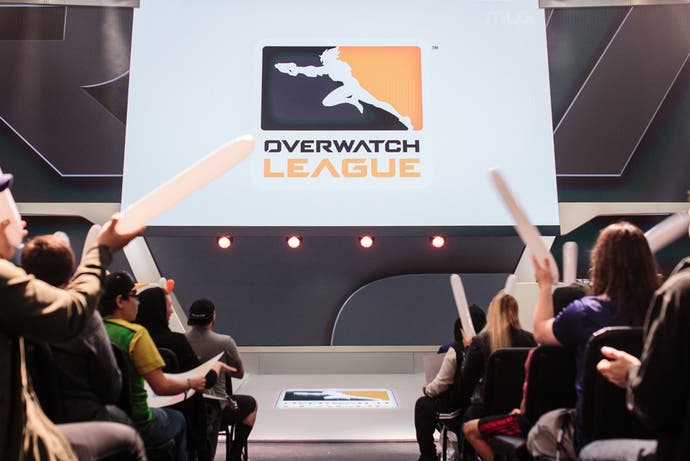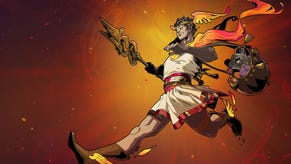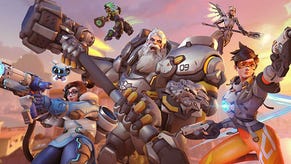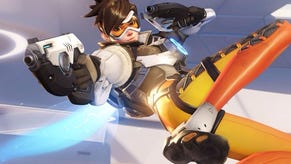Overwatch the game versus Overwatch the esport
We're not quite all soldiers now.
Overwatch's lineup of colourful kooks is one hell of a departure from genre norms. Valve's Team Fortress 2 had industry-leading silhouettes, but it's hard to compete with special-forces granny and company. It wasn't surprising, then, to see Overwatch bring in crowds other shooters never catered to. It turns out the people really enjoy the diverse cast Blizzard has brought to play. Overwatch near abandons the idea of the typical gravelly white guy (the one present was turned into a "tough dad" by the fandom). And while the studio has a spotty history with representing different colours and creeds, with Overwatch, Blizzard appears to be making an effort to become the frontrunner for inclusion in the triple-A games space.
It looked like the Overwatch League would run with this. Sure, there were issues from the get-go - the team distribution was, let's say, more than a little US-centric. But those were wrinkles to iron out. An esports league where you could root for local heroes, though - that's a selling point. Not only would this mimic real sports - creating a sense of camaraderie with local Overwatch fans - it would potentially bring more diversity to a scene that's traditionally homogenous. Bringing pro players together from across the globe, from all sorts of backgrounds is in theory a fantastic way to celebrate the inclusion Overwatch champions.
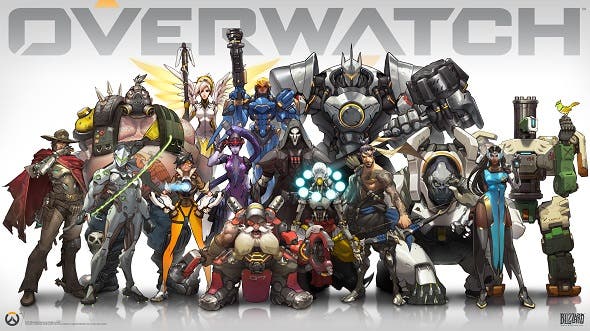
Unfortunately, things haven't turned out as I'd hoped. While Overwatch League teams span the globe (well, the US, with a few handouts to Europe and Asia), their lineups look more or less like any other esport's. London Spitfire have faced accusations of "snapping up" the best Korean players at the expense of local talent, while prominent European players were bought up by the Americans. The Overwatch League is supposed to be a worldwide league, but it draws from the same limited pool of regions most esports have done for years.
As Kotaku reported earlier in January, it's also notable that none of the teams picked up a female pro player. Whether South Korean Overwatch off-tank Kim "Geguri" Se-yeon, the Zarya master highlighted in the piece, wanted to play in the Overwatch League in the first place is a subject of debate, but fans still found the responses given by the team manager to be rather shaky.
UPDATE 14th February 2017: The Shanghai Dragons have announced they've signed Geguri in preparation of stage two of the Overwatch League regular season.
But what do Overwatch fans who don't identify as a typical white, cis guy, shooter player make of the League? Speaking to Eurogamer, these fans cited the diverse range of characters as a focal point for their interest in the game. One fan was attracted to "character design that seemed to treat each character as a 'main' character in their own right". Often Blizzard stumbles, but the effort Overwatch puts into making sure its characters break the norm brings these players to the game.
Unsurprisingly, most were unimpressed with how Blizzard was running the Overwatch League. Some felt the core concept of a city-based league was being fundamentally ignored. "This is how the League was sold to consumers," replied feminist media critic and Overwatch fan Nico Deyo on the lack of truly hometown teams. The messaging of players being able to move up through "Contenders", the development league for aspiring Overwatch League professionals, and into the pro league is a misdirection, when teams so far have picked from the crop of the most established players. The Overwatch League was sold as a place to follow local teams, but, according to Overwatch fan Athene, "the lack of *anyone* from the UK being a part of Spitfire has made me totally uninterested in following them."
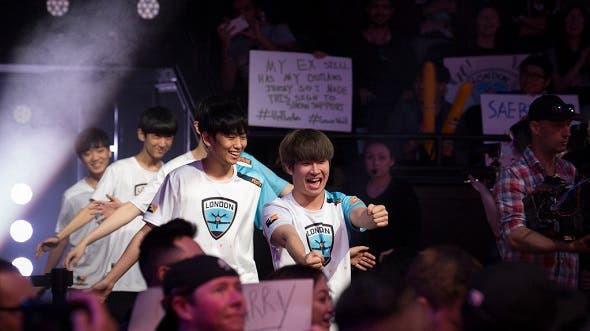
The feeling that Overwatch the game and Overwatch the esport are culturally different was captured by the response of artist and regular competitive player Guttersquid: "It's this disconnect between Blizzard's focus on diversity and the culture surrounding Overwatch that makes the Overwatch League a fraught experience for marginalised players and fans."
In an attempt to replicate real-world sports in esports, the worst parts of the former have been brought into the latter. "There's an atmosphere of nationalism and xenophobia existing at odds with a game that features characters from countries all over the world working together," Guttersquid continued. It's clear Overwatch is hugely successful at bringing new players to the team-shooter genre, but it's equally clear some aren't on board with the game as an esport.
And it's not like the wider competitive Overwatch scene lacks female talent. Team Venus, an all-women competitive team, was brought together for a female team tournament run by GanymedesGirls last year. In a public statement, GanymedesGirls said "women have not always been encouraged to compete at a high level", but they encouraged women who wanted to go pro to check out a number of tournaments and leagues, and pointed towards the Female Pro League. While the Overwatch League may be inaccessible for the time being, there are still avenues for players to explore on their way to the big leagues.
Esports commentator and Female Pro League co-founder Jen "LemonKiwi" told us women looking to go pro face many more barriers than their male competitors. "The social climate makes it difficult for some female members to even use voice comms, and reach out to teams for tryouts," LemonKiwi said.
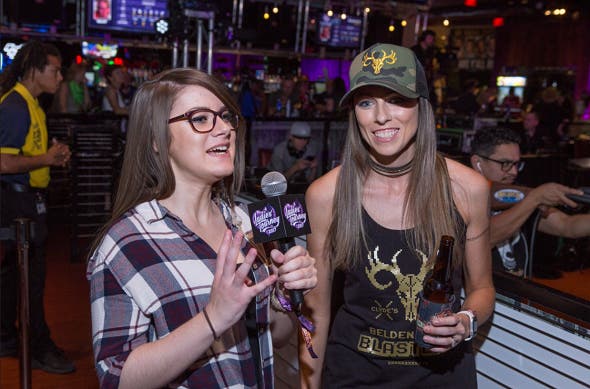
Don't expect these barriers to disappear overnight, either. "The female talent pool is not only small in numbers, but in the beginning stages of development," LemonKiwi continued. Based on her experience working with the highest level female pro players around, none considered themselves at the level of skill required for the Overwatch League. "I'm certain the best female players in Overwatch right now would rather be picked for their skill and other qualities, without a single thought about their gender."
Overwatch League Commissioner Nate Nanzer, alongside Overwatch development chief Jeff Kaplan, addressed some of these concerns in an interview with Eurogamer. The pair discussed the makeup of players in the League, and the barriers some Overwatch fans face as they move into esports.
"Our mission statement around the League is absolutely 100 per cent in line with the game," Nanzer insisted. "From its own perspective, from a vision and values perspective. One of the things we've been trying to do our best at is being very quick to act when there are things that happen with players in the League when they don't share those values. There's very public suspensions and fines and things like that being carried out; ongoing conversations with players that aren't public around where expectations are when they play.
"I disagree that there's a disconnect between the League and the game. We're both connected, and we spend a lot of time working with Jeff and his team to make sure the mission and values are aligned."
"The Overwatch League Team was grown from the Overwatch Team. We were the same people, we share the same values," Kaplan added. "It's trickier with the League than in the game itself - in the game, we define who the people are. We don't have that luxury when it comes to the League itself, but I do believe the League is very aspirational in what it's trying to achieve. Not just in diversity, but in everything that it's doing: bringing awareness to esports, that it's a global league, that it's not tied to one continent."
Both Nanzer and Kaplan ultimately see their positions at the game's helm as one of tearing down barriers to entry. "The message from us at Blizzard is everybody's welcome," reiterates Kaplan. "This is an experience we want to include as many people in. We are very dedicated to protecting everybody and making everybody feel welcome.
"What we can't do is force people to walk through the door. We can't force people to buy Overwatch and play the game. At a professional level, [we don't decide] who's going to end up signed on a team."
While it's reassuring to hear Blizzard intends to create an inclusive space through the League, it'll likely take years before that message turns into action. Overwatch has drawn in millions through its positive vision of a diverse future, but competitive gaming has for a long time pushed away women, minorities, queer players and anyone it deems "other". For the most part, these people haven't had the same encouragement to grow their skills - and those who persist often face large-scale harassment.
Many of them are disappointed in this first season of the League, but if Blizzard is truly dedicated to keeping the scene open and stomping out intolerance - as Kaplan and Nanzer insist they are - perhaps years down the line, we'll see a competitive scene that better reflects the wide range of Overwatch fans.
After all, there's little more aspirational than seeing someone like yourself at the highest level of competition.
